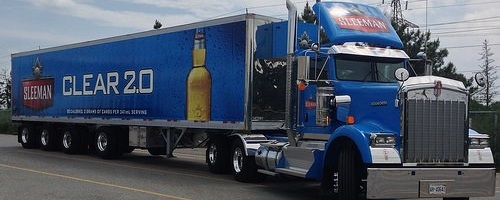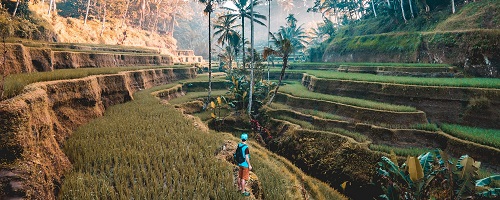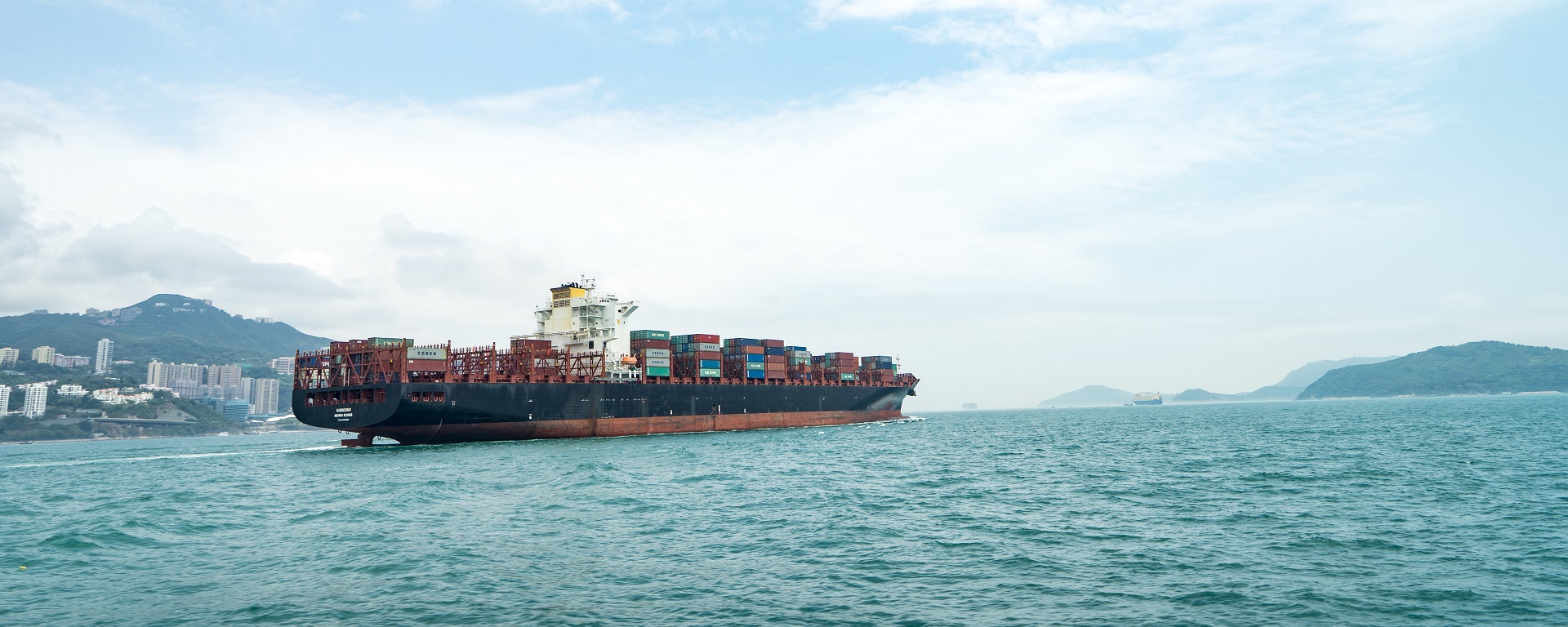If you are interested in using economics and business management to address the challenge of feeding 7.5 billion people with a limited set of natural resources then the Food and Resource Economics (FRE) program will take your interest to a whole new level. You may choose to specialize in applied economics by taking courses that focus on natural resource economics, economic development and international trade, or you may choose to obtain a broader skill set by combining courses in economics, business management and science (e.g., “Nutrition Concepts and Controversies”). The option to work closely with a professor by doing a directed studies and/or a six-credit thesis will help prepare you for subsequent graduate studies.
Why study Food and Resource Economics at UBC?
Highly flexible so that you can focus on your area of greatest interest, the Food and Resource Economics degree (FRE) lets you home in on the global issues you think matter the most, whether they’re in trade, the environment or the management of resources in the food industry. Through preparation in critical and analytical skills, experiential learning, and opportunities to build your competencies through practicums or in overseas study, this program primes you for employment in the expanding field of food and resource economics, or prepares you to take your studies to the next level.
Program Overview
In Food and Resource Economics (FRE), you’ll work with peers, profs and professionals to understand and critically analyze a range of economic and management issues in food supply chains, including the environmental and resource-related impacts of food production. You’ll round out a solid base in economics, business, math and empirical methods with restricted electives (primarily in economics and business) and unrestricted electives, focusing your degree toward the area of food and resource economics that interests you most.
In FRE, you can specialize in one of the following three topic areas:
- Food Markets and Development
- Land, Resources and Environment
- Food and Resource Management
You can also mix and match between them. If you’re primarily interested in agribusiness and resource management, we suggest you choose the Food and Resource Management stream, or even look into the Master of Management Dual Degree program option. Upon completion of the FRE program, you’ll be well suited to pursue graduate studies in UBC’s Master of Food and Resource Economics, the School of Public Policy and Global Affairs at UBC, or a variety of applied economics MSc programs outside of UBC.
Please consult the UBC Academic Calendar for the list of required courses and where in your schedule you will be able to choose restricted and unrestricted electives.
Specializations Offered
Topic 1: Food Markets and Development
Combine popular ECON courses such as “Understanding Globalization” and “International Trade”, and popular FRE courses such as “Introduction to Global Food Markets”, “The Economics of Food Consumption” and “International Agricultural Development” to critically analyze local and global food markets.

Food markets have become highly segmented due to rapidly growing consumer interest in locally and sustainably sourced food and continued reliance on complex global food supply chains. Regulations that address health claims on product labels, policies that address obesity and food-related diseases and trade deals that aim to lower the cost of food for consumers require an economics framework for meaningful analysis. The Food Markets and Development topic area provides this framework.
Topic 2: Land, Resources & Environment
FRE courses such as “Land Economics”, “International Trade and the Environment” and “Economics of Global Resource Use and Conservation” provide an excellent foundation for the study of natural resources and the environment, especially as they relate to food production and distribution.

With global population continuing to rise and climate change a major threat to food production systems, management of our natural resources and the environment is critical. An increasing prevalence of droughts and floods, shrinking irrigation aquifers and an on-going loss of biodiversity are challenges that requires careful economic analysis. The Land, Resources & Environment topic emphasizes theoretical and empirical analysis in an interdisciplinary framework to address these challenges.
Topic 3: Food and Resource Management
Combining a suite of commerce courses and management-focused FRE courses provides diversity to your Food and Resource Economics degree. Learn the principles of finance, marketing, operations management and business data analytics to prepare for today’s rapidly-evolving food sector.

Students who choose the Food and Resource Management topic will take FRE courses that focus on business planning, entrepreneurship, business data analytics and operations management. They will also take a suite of commerce courses to round out their business management skillset. Together with core courses in economics and land and food systems, students will be well on their way to successfully managing businesses which operate in increasingly complex food supply chains.
Meet Our Community

Chang Che
Food and Resource Economics
Chang Che is a fifth-year Food and Resource Economics (FRE) student whose goal has always been working in public policy. Earlier this year, he travelled to Indonesia with a small cohort of UBC students to take part in Go Global’s LFS 303: International Field Studies in Policy Analysis for Agriculture and Natural Resources.

Sasha Dobisz
Food and Resource Economics
Sample Courses
In addition to the LFS core series (LFS 100, LFS 250, LFS 252), you will take a broad cross-section of science, mathematics and economics courses throughout your program. Some exciting courses you can look forward to include:
- FRE 302: Small Business Management in Agri-food Industries
- FRE 306: Introduction to Global Food Markets
- FRE 385: Quantitative Methods for Business and Resource Management
- FRE 460: Economics of Food Consumption
- ECON 234: Wealth and Poverty of Nations
- ECON 339: Economics of Technological Change
- COMM 457: Fundamentals of Financial Accounting
To see the complete list of required courses for this program, please consult the UBC Academic Calendar. You will soon be able to use the ‘Degree Navigator’ tool in your Student Service Centre (SSC) to track your progress.
You can read more about the course options available to you in the Restricted Electives page.
Where Can a Degree in Food and Resource Economics Take You?
This undergraduate program was inspired by our successful professional masters program, the Master of Food and Resource Economics. Graduates will go on to careers in areas like:
- agribusiness such as agri-finance or management in a food processing firm
- import/export with knowledge of global food markets and trade
- non-profit with a focus on local food security, food waste management, etc.
- consulting in the area of environmental and natural resource management
- data analytics in wide range of agri-food applications
Get a head start on your career-related work experience while you’re at UBC. Check out What You Can Do With a Degree in Food and Resource Economics here, and scroll through our job board for postings that
relate to your field of study!
How to Apply
FRE is a second-year entry program, meaning you’ll need to have completed 24 credits before your start date. You can read more about the admission requirements for the FRE program in the UBC Academic Calendar. While not required, if you are interested in applying to the Bachelor of Science in Food and Resource Economics, we strongly encourage you to follow the first-year requirements of the FRE degree.
Most students apply for admission in the fall of their first year so they can begin the FRE program the following September. For students new to UBC, apply using https://account.you.ubc.ca/s/apply-ubc and follow the instructions to create an account. For current UBC students, apply using https://ssc.adm.ubc.ca/sscportal/. In most cases a link will be available for you to upload your letter of intent. If a link is not available then please send your letter of intent by email to the Admissions office at: admissions.inquiry@ubc.ca.
For students new to UBC, your deadline to apply is January 15 of the year you plan to begin the program (e.g., January 15, 2021 for a September, 2021 start date). The deadline for submitting the required letter of intent (see the UBC Academic Calendar for details) is March 15. For current UBC students, you are also encouraged to also apply by January 15. However, applications from current UBC students will be considered on a rolling basis until May 15.
Got Questions?
If you have questions about this program, include questions about transfer credits, please get in touch. One of our academic advisors in LFS Student Services will be glad to help you.
The advisor for this program is Professor James Vercammen (james.vercammen@ubc.ca). Please contact him if you have questions that LFS Student Services were not able to answer.
